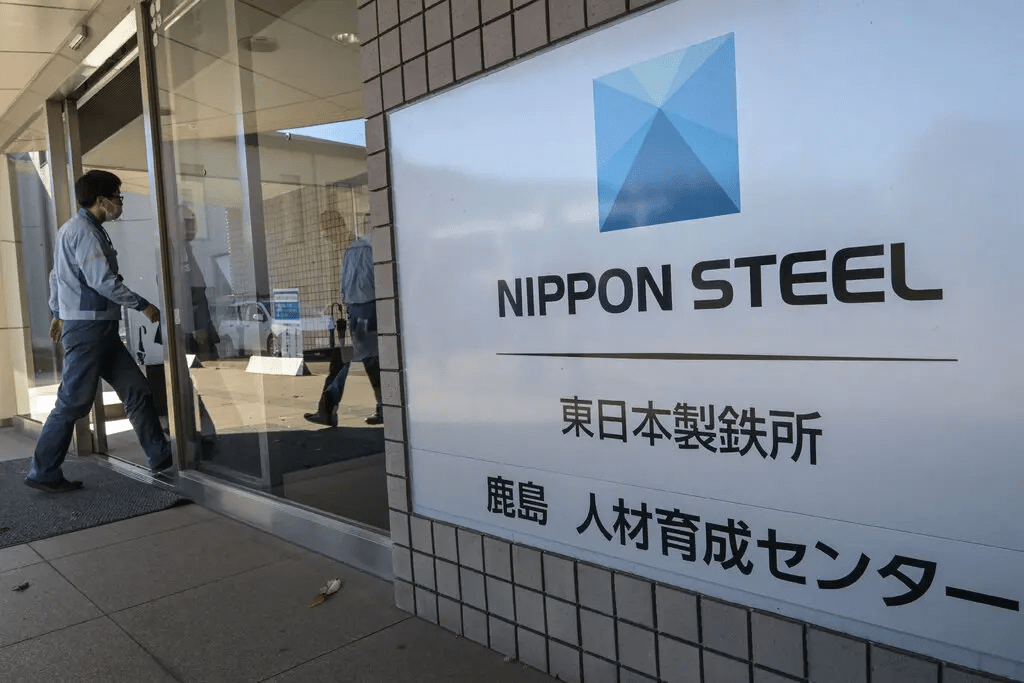Joe Biden Nixes Nippon Steel’s $14 Billion Takeover of U.S. Steel, Citing National Security
President Joe Biden has blocked Japan’s Nippon Steel’s $14 billion acquisition of U.S. Steel, citing national security ground. The decision, announced on Friday, is a rare step to use executive authority and underscores the political sensitivity that has surrounded the sale of the iconic Pennsylvania-based steelmaker during an election year.
Biden cast the action as critical to protecting America’s key industries.
“As president, my responsibility is to make sure that America’s steel industry is strong, domestically owned and able to meet our national security requirements,” Biden said in a statement. “Preventing foreign control of U.S. Steel is a vital step to protect the interests of our nation.” Joe Biden US Steel
The decision highlights the Biden administration’s determination to protect domestic manufacturing, but it threatens to create tensions with Japan, a crucial ally and one of the biggest overseas investors in the United States.
Also Read This:-
- Best Term Life Insurance for Seniors Over 70 IN 2025
- Low-Cost Whole Life Insurance for Seniors: Affordable Protection
- How to Choose an Insurance Agent: What You Need to Know
- Crucial Tips to Determine How Much Auto Insurance Do I Need
- Discover Which Health Insurance is Best Now! Click Here!
- What Is General Insurance and Its Types? Find Out Now!
At the Top of the National Security Agenda
The deal was met with skepticism from a federal panel, with the Committee on Foreign Investment in the United States, which is made up of departments like Treasury and Justice, expressing reservations. CFIUS expressed concern that the sale could undercut American steel production and pose a threat to supply chains important to national security.
CFIUS decided against making an official recommendation on the deal, leaving Biden to make the final decision. That lack of consensus effectively paved the way for Biden to block the deal.
“CFIUS confirmed that the foreign ownership of U.S. Steel would threaten national security and supply chain security,” Biden said.
The Political Stakes and Union Solidarity
The decision had a political dimension. U.S. Steel is based in a swing state that is vital to the next presidential election: Pennsylvania. The powerful United Steelworkers union vigorously resisted the takeover, worried that Nippon could walk back promises to maintain jobs, invest in plants and protect worker pensions.
David McCall, international president of the United Steelworkers, welcomed Biden’s involvement.
“President Biden’s bold action solidifies his commitment to American workers and the domestic steel industry,” McCall said.
Biden’s chief political rival, former President Donald Trump, has spoken out against the deal as well. Trump announced that he would block the transaction if elected, entangling the takeover even more in campaign politics. Joe Biden US Steel

Nippon Steel’s Response and Potential Legal Action
Nippon Steel criticized the ruling, saying the process had been tainted by political pressure. The company said it was ready to contest the move in court.
“The concerns raised by CFIUS are speculative and not based on any facts,” Nippon said in a statement. “We will take appropriate legal actions to protect our rights.”
U.S. Steel has also defended the deal, saying that it is the best way to ensure the company’s long-term success.
“This acquisition presents the best opportunity to ensure a bright future for U.S. Steel, our employees and our communities,” the company said in a statement after the CFIUS review. Joe Biden US Steel
Wider Economic and Strategic Effects
Blocking the sale could also lead foreign investors to reconsider future acquisitions of U.S. companies in sensitive industries, which could lead to a slowdown in foreign direct investment. It could also impact bilateral relations with Japan, which has been a major investor in U.S. infrastructure and technology.
After opposing the steel deal, Trump had welcomed a $100 billion investment by Japan’s SoftBank focused on expanding artificial intelligence and technology businesses inside the U.S.
Background and Future Outlook
Founded in 1901, U.S. Steel has been a symbol of American industrial might for decades. Now it has struggled to keep pace with changing global markets and technological advances. The company, once employing 340,000 workers during the peak of its operations in the 1940s, now has roughly 20,000 employees, 4,000 of those in Pennsylvania.
Nippon Steel, the world’s fourth-largest producer of steel, pursued the deal in hopes of gaining footing in the United States, allowing the company to take advantage of federal spending on infrastructure. But the political conditions and national security were what sank the deal in the end.
With the presidential election approaching, Biden’s decision reinforces his administration’s focus on American workers and the domestic industry, sending a signal to voters about his commitment to protecting the nation’s jobs and interests.
